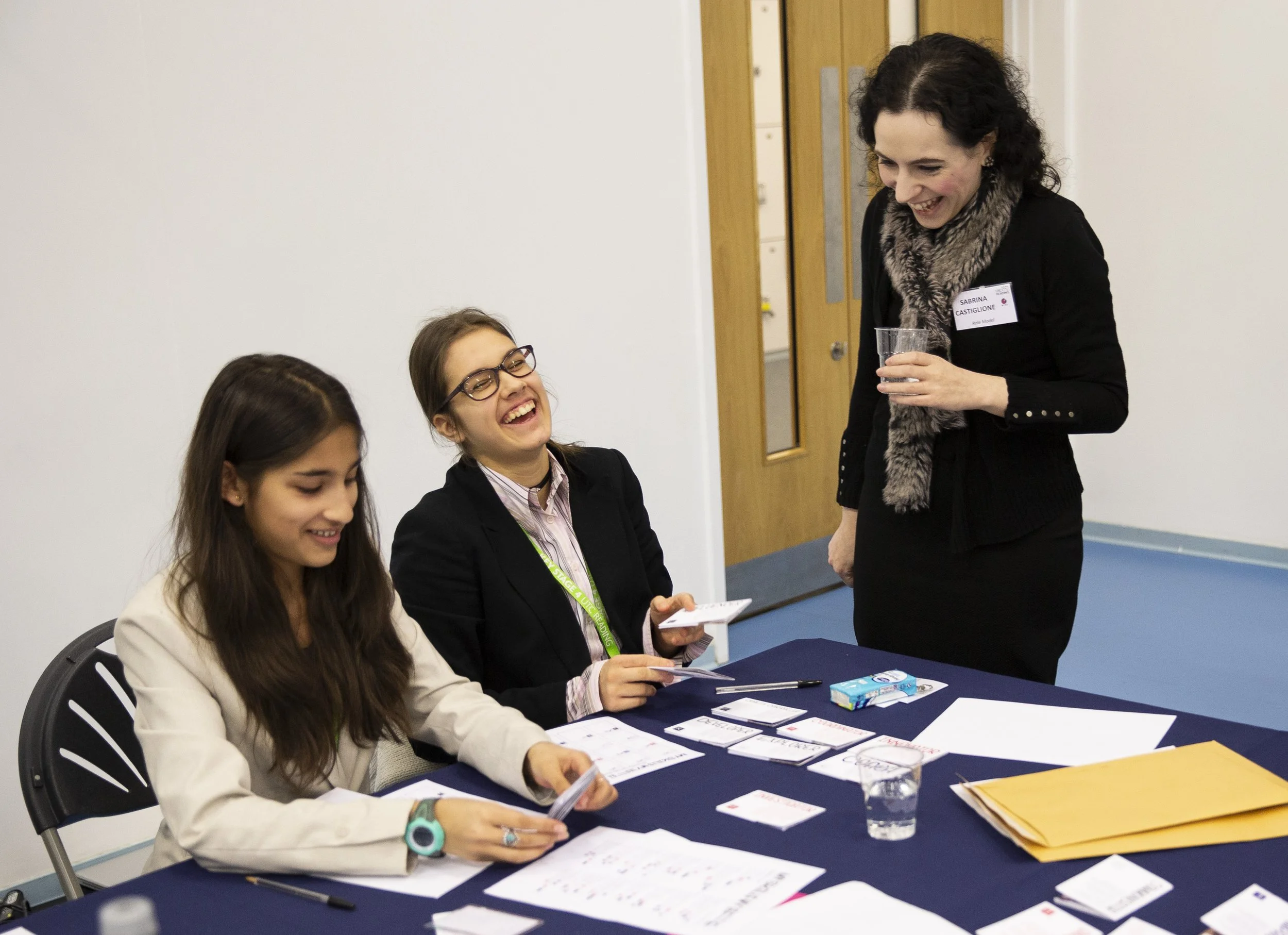A mentor like me: helping girls to thrive in STEM subjects
To mark International Women’s Day this week, we have a guest blog from the WISE Campaign talking about the importance of role models in ensuring more girls take STEM subjects at school and pursue careers in STEM industries.
---
As educators already know, there is no shortage of female talent when it comes to Science and Maths at school. Girls repeatedly outperform boys in most STEM subjects – an umbrella term for the fields of Science, Technology, Engineering and Mathematics.
The gender confidence gap
However, whilst girls are excelling academically at STEM subjects at GCSE level, they overwhelmingly choose not to pursue these subjects further in education, and this has big consequences for the kinds of careers they can pursue later in life.
Right now, boys are significantly more likely to opt into STEM study both in A-level and vocational study than girls. By A-Level, the gender STEM participation gap has already widened to such an extent that it continues to undermine the progress that the UK has made towards gender parity in the STEM sector over the last few decades.
This disparity is seemingly connected to the “gender confidence gap”. Research has found that more girls than boys report ‘not enjoying’ learning maths and science, with many more expressing ‘low confidence’ in their learning ability in those subjects. So, what’s driving this lowered confidence in girls?
A-Levels is too late
We know that A-Level is a major “drop off point” for the girls who demonstrably do have the talent and skills to pursue a STEM education. In each school cohort, female potential and talent is being overlooked, rather than nurtured and valued.
For example, at GCSE in 2023, 36,273 girls were awarded a grade of 7/A or higher for Physics. If just half of these girls took Physics at A Level, it would double the total number of girls taking the subject. We urgently need to encourage more girls to study STEM subjects at A-Level. But this means tackling the unconscious biases that perpetuate the gender stereotypes that deter girls from pursuing STEM education, and, importantly, from imagining themselves in STEM careers – as engineers, nuclear physicists, IT professionals (and much more!).
Gender Stereotypes
At WISE, we work towards the participation, contribution and success of women in the UK STEM workforce. We understand that the choices of 15 and 16 year olds are influenced by perceptions that develop a lot earlier in a child’s educational journey. Gender stereotypes - oversimplified generalisations that dictate what is acceptable/expected for women and girls, and for men and boys – impact children from a young age.
Gender stereotypes have harmful effects on our children, and, in the context of STEM, they can lead to closing off possibilities for some children.
Research conducted by the Fawcett Institute shows just some of the ways that gender stereotypes play out:
By the age of six, girls avoid subjects they view as requiring them to be “really, really smart”, which translates to lower take-up of STEM subjects in later life.
From an early age, boys are 4 times more likely to want to become engineers as girls
Boys have lower expectations of and confidence in their reading ability, leading to them developing lower skills.
36% of seven to ten year old girls say they are made to feel their looks are their most important attribute.
In addition, it’s worth noting that children with strongly stereotyped views of gender tend to have poorer overall well-being. We need to work together – as teachers, parents and educators – to challenge gender stereotypes and the stories they tell us about the limits of the world we live in.
STEM role models
One evidence backed way to counteract the gender participation gap is by making sure that girls have diverse STEM role models.
The number of girls interested in STEM across Europe, on average, almost doubles when they have a role model to inspire them.
41% of girls with role models report an interest in STEM subjects, compared to 26% of girls without a role model.
51% of girls with role models can imagine a future career in STEM.
Not only do girls and women need STEM mentors but they need mentors that look like them. Same gender peer mentoring can have a significant and long-lasting impact.
In one study, women engineering university students who were assigned female peer mentors felt more confident and motivated in their studies. Having a female mentor influenced participants’ intentions to remain in the STEM field beyond their period of study. In contrast, those without mentors, and those assigned male mentors, showed a decline in confidence, motivation and well-being.
Women in STEM outreach
WISE developed My Skills My Life as a fun effective outreach tool to use in schools. It demonstrates to school-age girls that there are lots of people just like them that have successful and rewarding careers in STEM.
As part of the training, girls take a unique personality test to discover which type of STEM career could be the best fit for them. WISE also has a database with over 1000 inspiring STEM role models – girls can learn what pathways women with their same personality traits have taken within the STEM sector. This allows them access to a diverse range of STEM role models. In the process, participants will realise that there are lots of different career options within STEM. My Skills My Life helps leaders, teachers, parents (and especially young girls) to better recognise potential before it’s too late.
If you’re a teacher interested in learning more about using My Skills My Life in your school, get in touch.


